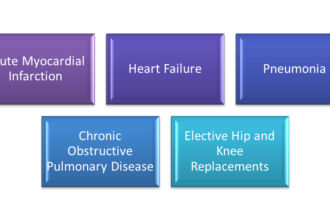Summary: What will you pay for individual health insurance as of 2014? What factors will contribute to your individual  premium?
premium?
Summary: What will you pay for individual health insurance as of 2014? What factors will contribute to your individual  premium?
premium?
The health insurance exchanges are coming. The exchanges will basically be marketplaces in which individuals can shop for health insurance. The exchanges will provide one central place to research the plans available, premiums to be paid, and features and options available. Individual states have the option to setup their own marketplaces, become part of the federal marketplaces, or form a joint exchange between federal and state.
So, what will you pay for individual insurance though the exchanges in 2014? Well, you can pretty much assume you will pay more – how much is another issue. Health insurance premiums will be calculated using several factors.
Health insurance premium factors:
- Are you currently insured? If you are not, it is guaranteed that you will have a 100% increase in premiums since your premiums have been $0.
- Mental and nervous coverage and maternity will now be essential elements in insurance coverage. Adding these into coverage will increase premiums as you are receiving greater benefits.
- Health insurance will now be influenced by a person’s income level. Subsidies will be available to individuals and families whose incomes are up to 400% of the poverty level. Individuals will have to provide validation of income in order to be covered. A caveat needs to be inserted here. If you earn more than was estimated, you might have to return part of the subsidy given. An estimated 57% of the population will be eligible for these subsidies.
- Age will certainly be a factor. Older Americans in general tend to be sicker and they might actually see their premiums go down slightly because younger healthier Americans will be added to their risk class. Currently older Americans can be charged up to 5 times the amount
 of younger individuals and this limit is being reduced to 3 times. Therefore, this class just might see a reduction in their premiums.
of younger individuals and this limit is being reduced to 3 times. Therefore, this class just might see a reduction in their premiums. - Gender was previously included in the health insurance premium and this has now been removed. Previously females (all things being equal) paid higher premiums than males as males tend to visit the doctor less often. With males having lower premiums to start with and the playing field being leveled based on gender, it is likely males will receive a higher premium increase in 2014.
- Where you live will influence your premiums as well. Each state has the option to set up their own exchange (and therefore influence the premiums) or join the federal exchange which will have the same plan choices/premiums to choose from regardless of the state in which they reside. What happens when someone moves and is part of the exchange system? They will have to find out what options are available from their state and will have to choose new plans and insurers (unless moving from state to state which are both covered under the federal program).
- Pre-existing conditions can no longer affect premiums or be a condition not to insure. This is great news for those with major conditions such as cancer or heart disease. They will see either a reduction or a less severe increase in their premiums. The health individuals however will now be paying the same premiums as those with major conditions.
Basically, the exchanges will provide additional coverage not previously found in individual plans. There will be many factors which will influence what premium you pay from where you live, to your income, to your chosen plan/provider, to your age. Health insurance as we know it is heading for big changes. Be sure to check with your individual state to see what options exist. Do your research and be prepared for increases in premiums. Maybe you will be one of the few with a less drastic increase.



 of younger individuals and this limit is being reduced to 3 times. Therefore, this class just might see a reduction in their premiums.
of younger individuals and this limit is being reduced to 3 times. Therefore, this class just might see a reduction in their premiums.



